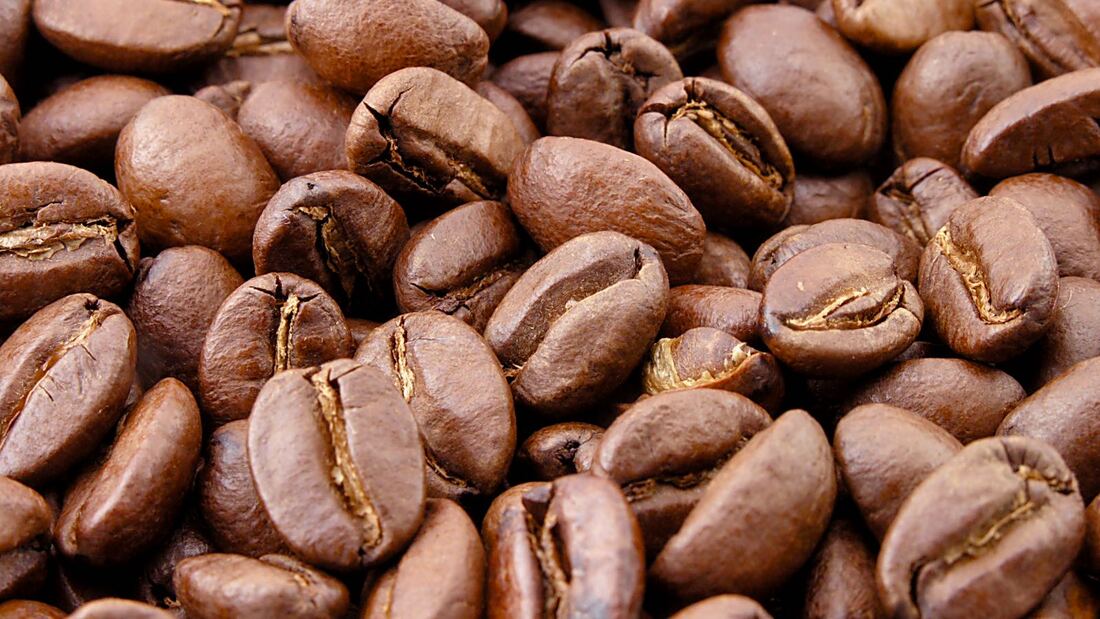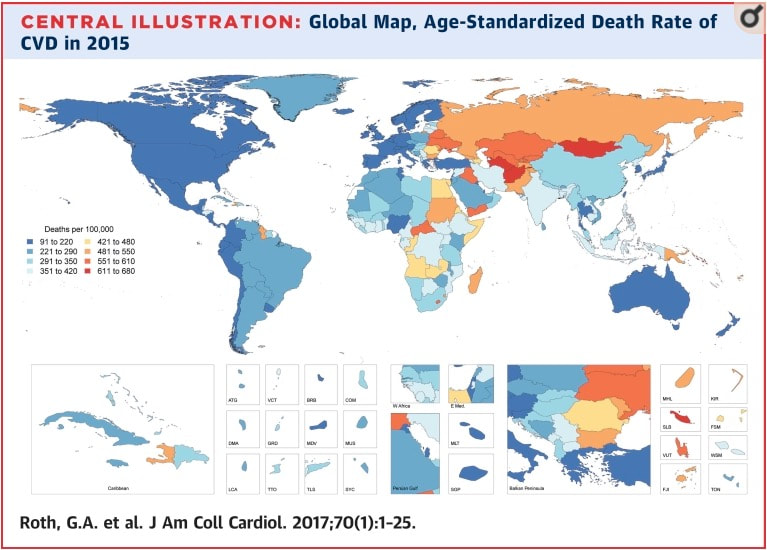|
SEARCH My Blog (Opens in new tab)
Headline: to maintain a healthy heart and blood pressure, people must limit their coffeesDrinking too many cups of coffee a day is associated with increased risk of cardiovascular diseases (CVD), e.g. heart disease and stroke, new research from the University of South Australia reveals. The world enjoys about three billion cups of coffee every day. We'd hope that we're not poisoning ourselves! If you've ever felt jittery or irritable after one cup too many, then you are edging on the dangers found by the researchers. I don’t feel jittery or irritable but I do drink more than the recommended number of cups daily. All things considered, I probably won’t cut back. Finns drink 2.5X more a day than the USCoffee statistics show that among coffee drinkers, the average consumption in the United States is 3 cups of coffee per day. However, that places the United States only 8th* in the league of top countries in the world with the highest amount of coffee consumption, which includes, in order:
*UPDATE: The latest, 2022, coffee consumption statistics are out, and the US rates 14th in the world for coffee consumption. Thanks to Oli at Drinkycoffee.com: Coffee Statistics [Updated For 2022] I drink between 3 and 5 cups most days. What I find fascinating is that the researchers did not find a linear relationship between our "daily dose" of coffee and an increased risk of cardiovascular disease. The relationship they found is a J-Curve, meaning that drinking both none or excess coffee is associated with poorer health outcomes than drinking a moderate amount. In fact, those drinking decaffeinated coffee had poorer health outcomes than those drinking moderate amounts of real coffee. When a substance exhibits a J-Curve then it means that a certain dosage is beneficial i.e. something in caffeine is beneficial for our health. Think of Vitamin D - low levels in our body cause problems with our health, and high doses poison us. If we plot adverse health outcomes against the dose for Vitamin D, then it is a J-Curve - like caffeine. In caffeine's case, previous studies have also shown a correlation between drinking moderate amounts of coffee and reduced CVD (2014) and also reduced incidence of Type 2 diabetes (2008). The mechanisms which cause these benefits are not yet understood. That is, we don't know why drinking a moderate amount of coffee improves health outcomes. Drinking >6 cups daily has a 22% higher riskThis new study was purely descriptive - it simply ran the numbers to see if there was a correlation between drinking coffee and health outcomes. In that sense, it shed no light on the underlying reasons. The claim associated with this most recent research is that it is the first to confirm the point at which excess caffeine can cause high blood pressure, a precursor to heart disease. Apparently, this is the first time an upper limit has been identified for safe coffee consumption and cardiovascular health. That upper limit is 6 cups per day. However, those who drank no coffee or drank decaffeinated coffee the risk was higher than for those drinking 1 to 2 cups a day. Compared with study participants drinking 1–2 cups/day, the risk of CVD was elevated for:
It's almost enough to make you give up those extra cups of coffee! Almost. Don't panic yet if you don't drink 1 to 2 cups a dayYou need to make your own choice, but here are four considerations which I took into account in deciding not to necessarily cut back on my daily cups of coffee, based upon these study results. Consideration #1 - There does not appear to be any global correlation Statistically, the study was substantial, using data from more than 300,000 participants aged 37 to 73 in the UK Biobank, including 8368 who recorded cardiovascular disease during their period of registration with Biobank. But before you give up your coffee, remember that the study did not identify causation between caffeine consumption and cardiovascular diseases. A quick check of the global incidence of CVD (2017) shows that all of the top-ten coffee drinking countries have below the global median for CVD. These include Finland and Sweden, where they consume more than twice as much daily per person as the United States. Brazil has an even lower incidence of CVD than the other top-ten coffee drinking countries yet consumes more per capita than the United States. This suggests that the UK Biobank database i unrepresentative of the global population of coffee drinkers. Consideration #2 - The people on the UK database may not be a random sample The UK Biobank is a voluntary arrangement whereby people offer their anonymised medical data for the purpose of research. Perhaps the type of people who volunteer for such things aren't representative of the general population. However, as it turns out a study (February 2020) comparing risk factors and CVD mortality in the Biobank with range of "more representative" health studies found Biobank to be a reliable sample - "generalisable". That means that the coffee study conclusions do appear to apply to the broader UK population. So I can't use that reason not to cut back. Consideration #3 - People who drink more than 6 cups a day are more stressed There's evidence that coffee isn't the cause of extra stress on the cardiovascular system, but that people who have a high workload turn to drinking more coffee (Atroszko 2019). In this case, the high workload is the cause of higher CVD risk, and drinking more coffee is the symptom. Consideration #4 - People, who drink decaffeinated are worriers? In the current study drinking decaffeinated coffee was found to be associated with a higher risk of CVD. Could it be that people who are concerned about drinking decaffeinated coffee fret about their health? This study (2003) found that "persons on special diets were more likely to drink decaffeinated coffee whether they had heart disease or were free of any illness". Increased decaffeinated coffee drinking was associated with older age, female sex, and "use of special diets and cardiovascular, gastrointestinal, or neuropsychiatric symptoms". I feel that is a "yes" for people who drink decaffeinated coffee being more likely to be worriers. Being a worrier could well be associated with higher rates of CVD. Bottom line - I'm sticking with the FinnsTHEREFORE, despite this most recent study I am going to stick with the Finns and keep drinking my usual 3 to 5 cups a day - until further notice. From my point of view there are many more valuable aspects of our health which deserve our daily attention than fretting over how many cups of coffee we drink. For example, try walking every day for a start. I remain very interested in the causal relationships between coffee drinking and health. When I see those I may change my mind. Until then, I'm off for another cup. Follow me on Quora for more health and fitness tips.
If you valued this article >> Follow me Leave a comment >> Share it >> Stay healthy If you have any questions email me and I will get back to you. Latest: get your free customised fitness plan designed uniquely for you.
|
ChoicesSince I was diagnosed at 50 with Type 2 diabetes I've been learning how to do bone-building fitness training which lowers my age. You can too. It's your choice. Walter Categories
All
Archives
May 2023
|


 RSS Feed
RSS Feed 


